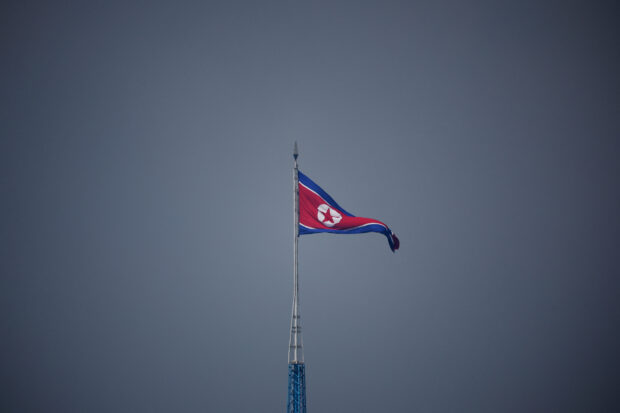North Korea conducts missile launch into sea after US bomber drills

FILE PHOTO: A North Korean flag flutters at the propaganda village of Gijungdong in North Korea, in this picture taken near the truce village of Panmunjom inside the demilitarized zone (DMZ) separating the two Koreas, South Korea, July 19, 2022. REUTERS/Kim Hong-Ji/Pool
SEOUL/TOKYO — North Korea fired at least two short-range ballistic missiles into the sea on Wednesday, August 30, South Korea’s military said, hours after the United States separately deployed B-1B bombers for allied air drills.
Japan’s defense ministry also reported that at least one suspected ballistic missile was launched, while Japanese media reported that two missiles were fired and landed outside Japan’s exclusive economic zone (EEZ).
“Our military has strengthened surveillance and vigilance in preparation for additional provocations, and is maintaining full readiness through close cooperation between Korea and the United States,” South Korea’s Joint Chiefs of Staff said in a statement.
READ: US holds drills with allies off Korean peninsula, Pyongyang vows to bolster navy
The launch comes a day before South Korea and the US wrap up 11 days of combined military drills, which Pyongyang has denounced.
Article continues after this advertisementThe B-1B bombers conducted separate air drills with warplanes from South Korea and Japan earlier on Wednesday.
Article continues after this advertisementNorth Korea’s ballistic missiles are banned by United Nations Security Council resolutions that have imposed strict sanctions on the nuclear-armed country.
READ: US accuses Russia, China of covering for North Korea at UN
The US is concerned that arms negotiations between Russia and North Korea are actively advancing, White House national security spokesperson John Kirby told a briefing on Wednesday, noting that any arms deal would violate sanctions.
Kirby said Russian Defense Minister Sergei Shoigu had recently travelled to North Korea to try to convince Pyongyang to sell artillery ammunition to Russia.
READ: North Korea’s Kim orders making more missiles ahead of South Korea, US drills
The United States and South Korean militaries want to more closely integrate their systems for tracking North Korean missile launches, an effort that may soon include more cooperation with Japan as well, US Space Force officials said on Wednesday.
US President Joe Biden agreed with South Korean President Yoon Suk Yeol and Japanese Prime Minister Fumio Kishida at an Aug. 18 summit that by the end of this year the three countries would share North Korea missile warning data in real time.
READ: North Korea developing nuclear weapons, evading sanctions in 2023 – UN report